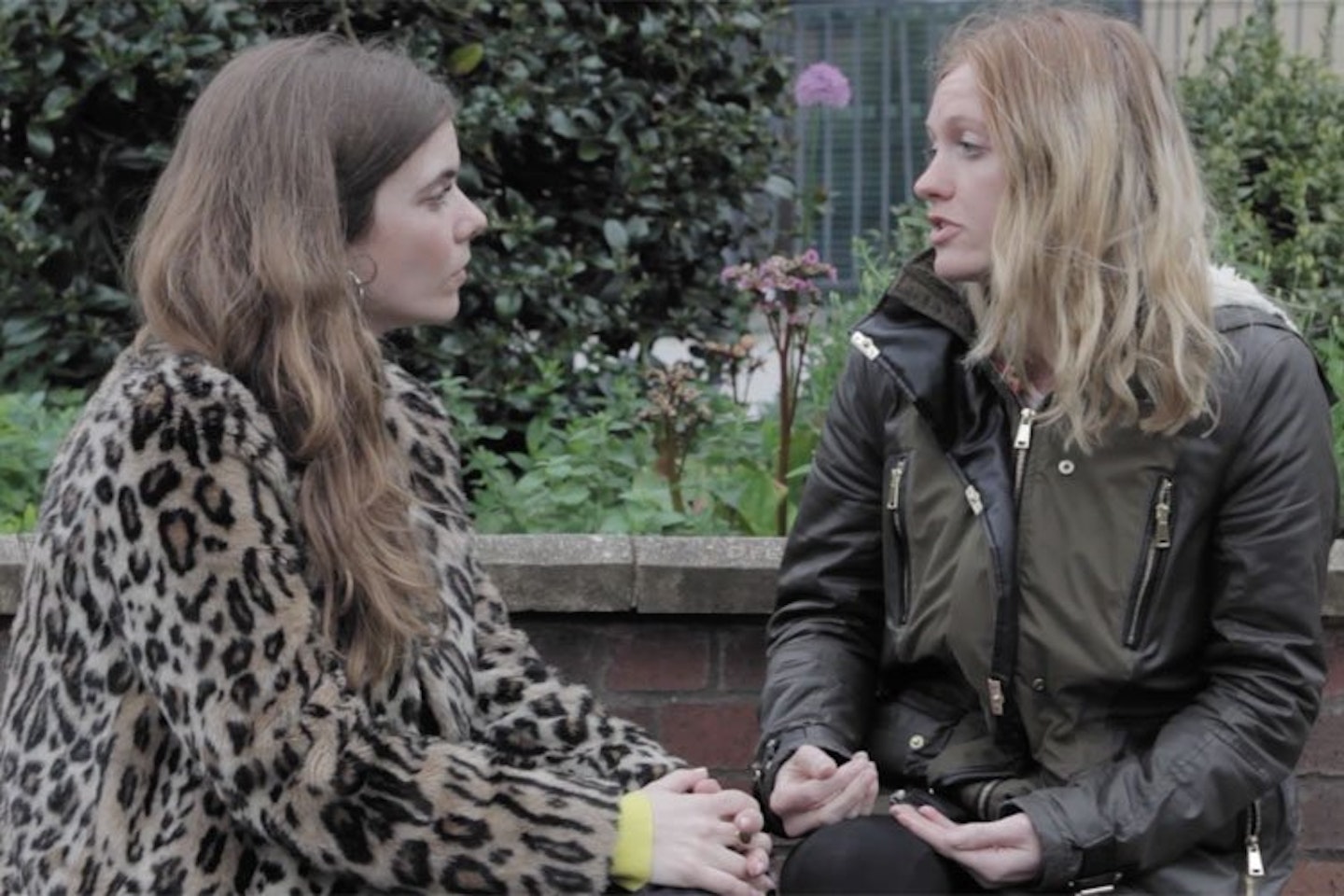‘I don’t really follow anything about politics of politicians…what’s gonna happen is gonna happen’. Alvera is in her mid-twenties, originally from Latvia, she currently lives in Derby and works at a restaurant in East Midlands airport. She can’t vote in this country but if she could, she would ‘do some research’. Her friend and colleague, Nicole, 25, who could vote, didn’t vote in last year’s EU referendum, nor does she plan to vote in next week’s General Election.
Women are less likely to vote than men, the irony being that they’re more likely to have been affected by austerity-driven cuts. Earlier this year, then Shadow Equalities Minister, Sarah Champion, published analysis showing that 86% of the burden of austerity since 2010 has fallen on women. The research, conducted by the House of Commons Library, concluded that tax and spending policies had a disproportionate impact on women.
I ask Nicole, who is currently pregnant, what the one thing that matters to her right now is? ‘Wages…minimum wage’ she says instantly. Assuming that both she and Alvera are on zero hours’ contracts (they aren’t sure - they don’t get holiday or sick pay), there’s a lot at stake for Nicole in this election. She knows that the costs of childcare are going to loom large over her pay packet.
We’re in Derby. This market town grew during the industrial revolution. Smart red brick C19th townhouses and cottages line the semi-suburban streets beyond the city centre as a reminder that this part of the Midlands was, once, a birthplace of huge change. As we approach this year’s snap general election we are, once more, in the midst of a time of change. It’s one which, you might argue, we’ve yet to fully understand.
In my own lifetime, just shy of three decades, the digital revolution – carried forth by the Internet - has changed everything. We now live in a multinational, global and hyper-connected world where the sort of jobs that people did in industrial Derby no longer exist. In line with the city’s past, manufacturing, however, is still big business here with Bombardier, Rolls Royce and Toyota being amongst the area’s major employers.

Derby North, a mainly suburban constituency to the North of the city centre, was England’s closest contest in the 2015 General Election, won by its Conservative MP Amanda Solloway with only a handful of votes. As a result of just ballots cast by just 41 people, Solloway unseated the Labour candidate, Corbynite and area’s previous MP, Chris Williams. There is also a strong Green Party presence here, they won 1,618 votes in 2015, perhaps contributing to Labour’s downfall. Williams is standing again this year, and hoping to win his seat back.
Williams has written that for him, this election ‘it comes as a great gift to be able to pin [his] colours to Corbyn’s leadership’ and describes himself as ‘the most Corbyn friendly candidate in the country’. To him, Labour’s current leader, with his ‘many not the few’ mantra has ‘clawed back Labour’s true values, reclaiming the ‘Party’s fighting spirit that for over a hundred years had pitted ordinary people against elites.’ This election, Williams says, ‘it literally life or death. Not in terms of the careers of politicians, but in terms of our country’s public services, our most vulnerable citizens and in terms of Britain’s foreign policy and our shameful legacy of vain and dubious wars.’
Can Chris swing the young female vote in Derby North? Charlotte, who is in her early 20s and lives in the constituency he’s campaigning to represent once more, thinks so. ‘Sorry I couldn’t text you back earlier’ she says when she arrives to meet me, ‘we’re on black alert at the moment’. Charlotte is an occupational therapist who works on a ward where people suffering from dementia and Alzheimer’s receive treatment at the Queen’s Medical Centre in Nottingham. She commutes there from her home in Derby North every day. She’s supporting Chris and thinks that Jeremy Corbyn is just what our country and its frontline services need. ‘He listens to the views of young people and he really cares’, she says, ‘I see first hand the effects of staff shortages and low staff morale [in the NHS].’

Nicole is no less affected by politics than Charlotte, but she certainly doesn’t see her needs or those of her unborn child reflected in our political system. Does Charlotte understand why other young women are disengaged with and cynical about politics? ‘I think a lot of young people are disillusioned by politics’ she tells me, ‘they think that people in Parliament don’t represent them’. As Charlotte sees it, this is a problem at the very core of our democracy which has resulted from years of people, particularly younger generations, not feeling as though they’re being listened to or addressed.
Nicole’s views are echoed by 20-year-old Chelsea. She works on the till at ASDA and has never voted, she says she worries about the future and also cites minimum wage as her priority but doesn’t think that politicians will do anything for her even if she does vote. The reason for the lack of political engagement from young women like Nicole and Chelsea seems to stem from the fact that they don’t see themselves as politically potent members of society. They don’t think politicians care about them, and so, they don’t care about politicians. For women like Nicole and Chelsea, who make up just two of the estimated missing millions of women voters, politics is not a solution for the problems they face in their everyday lives.
Perhaps, if women were put at the heart of our politics things would be different. We need to do more than simply ensure that more women are elected (currently only 29% of MPs are women), we need women’s needs to be reflected in policy. Last year a report by the UK Women’s Budget Group, conducted for the International Trade Union Confederation, found that investing public funds in childcare and elder care services is more effective in reducing public deficits and debt than austerity policies because it boosts employment, earnings, economic growth and fosters gender equality. And yet, the Conservative’s are merely proposing tapping pensioner’s funds to pay for care and allowing people to take a year off, unpaid, if they need to take care of a loved one.
As the election draws ever closer in Derby North, high profile politicians are making strategic visits to the constituency. Home Secretary, Amber Rudd has stood side by side with Amanda Solloway, Boris Johnson has dropped in on a factory where electronics are made for high-performance carsand Jeremy Corbyn has made a surprise visit to support Chris Williams, his biggest supporter. Will any of this influence Nicole, Chelsea or the millions of overlooked women like them?
The issue of women in politics is bigger than Westminster, it extends beyond which voters politicians court to questions about what sort of work we, as a society, value. Perhaps, if politicians were less willfully ignorant about the reality of women’s lives we would no longer need feminist economists like the Women’s there is a glaring paradox evident in our conversations here in one of this general election’s key battlegrounds: if women don’t vote, their needs will never be properly addressed. The personal is, as ever, political.
*Bursting The Bubble is our look at the election through the eyes of our readers around the country, whatever their political affiliations, in an attempt to burst through the social media bubble and see what young women in the UK really think about the state of politics today. *
Like this? You might also be interested in:
How Much Do The Women Of Shipley Care That Philip Davies Is Their MP?
What Do The Women Of Boston And Skegness Think About Brexit?
This Is Why 7.5 Million Women Won't Be Able To Vote For A Woman At This Election
Follow Vicky on Twitter @Victoria_Spratt
This article originally appeared on The Debrief.
